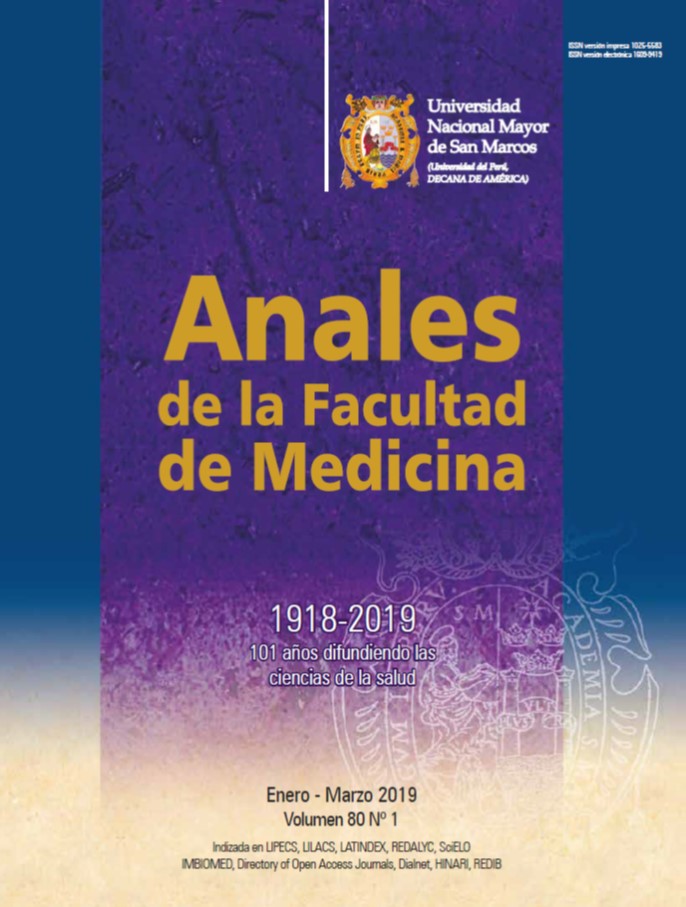Medicina narrativa
DOI:
https://doi.org/10.15381/anales.v80i1.15880Palabras clave:
Medicina Narrativa, Atención Dirigida al Paciente, Pacientes, Enfermedad, EmpatíaResumen
Una medicina científicamente competente por sí sola es insuficiente para ayudar a los pacientes a lidiar con la pérdida de salud, encontrar un significado en el sufrimiento y dotar al médico de la capacidad de establecer una relación médico-paciente suficientemente compasiva y empática. El interés en estos aspectos es propio de modelos de atención clínica centrados en el paciente (y no en las enfermedades), que también implica reconocer que los pacientes traen sus propias historias con información sobre su vivencia de la enfermedad. La narrativa, una forma lingüística con características definidas empleada en medicina, ayuda a generar un puente entre la biomedicina moderna y la experiencia vivida por el paciente. La medicina narrativa recoge aspectos del modelo biopsicosocial y la medicina centrada en la persona. Favorece el desarrollo de competencias para aprovechar las narrativas en los procesos diagnóstico, terapéutico, educación de pacientes, profesionales y la investigación; asimismo, tiene impactos positivos en los profesionales de salud al promover espacios de reflexión y autoconciencia, y se complementa con el enfoque de la práctica médica basada en la evidencia. En este artículo intentamos introducir la medicina narrativa como herramienta para la mejora de la atención médica.
Descargas
Publicado
Número
Sección
Licencia
Derechos de autor 2019 Anales de la Facultad de Medicina

Esta obra está bajo una licencia internacional Creative Commons Atribución-NoComercial-CompartirIgual 4.0.
Aquellos autores/as que tengan publicaciones con esta revista, aceptan los términos siguientes:
- Los autores/as conservarán sus derechos de autor y garantizarán a la revista el derecho de primera publicación de su obra, el cuál estará simultáneamente sujeto a la Licencia de reconocimiento de Creative Commons que permite a terceros compartir la obra siempre que se indique su autor y su primera publicación esta revista.
- Los autores/as podrán adoptar otros acuerdos de licencia no exclusiva de distribución de la versión de la obra publicada (p. ej.: depositarla en un archivo telemático institucional o publicarla en un volumen monográfico) siempre que se indique la publicación inicial en esta revista.
- Se permite y recomienda a los autores/as difundir su obra a través de Internet (p. ej.: en archivos telemáticos institucionales o en su página web) antes y durante el proceso de envío, lo cual puede producir intercambios interesantes y aumentar las citas de la obra publicada. (Véase El efecto del acceso abierto).



